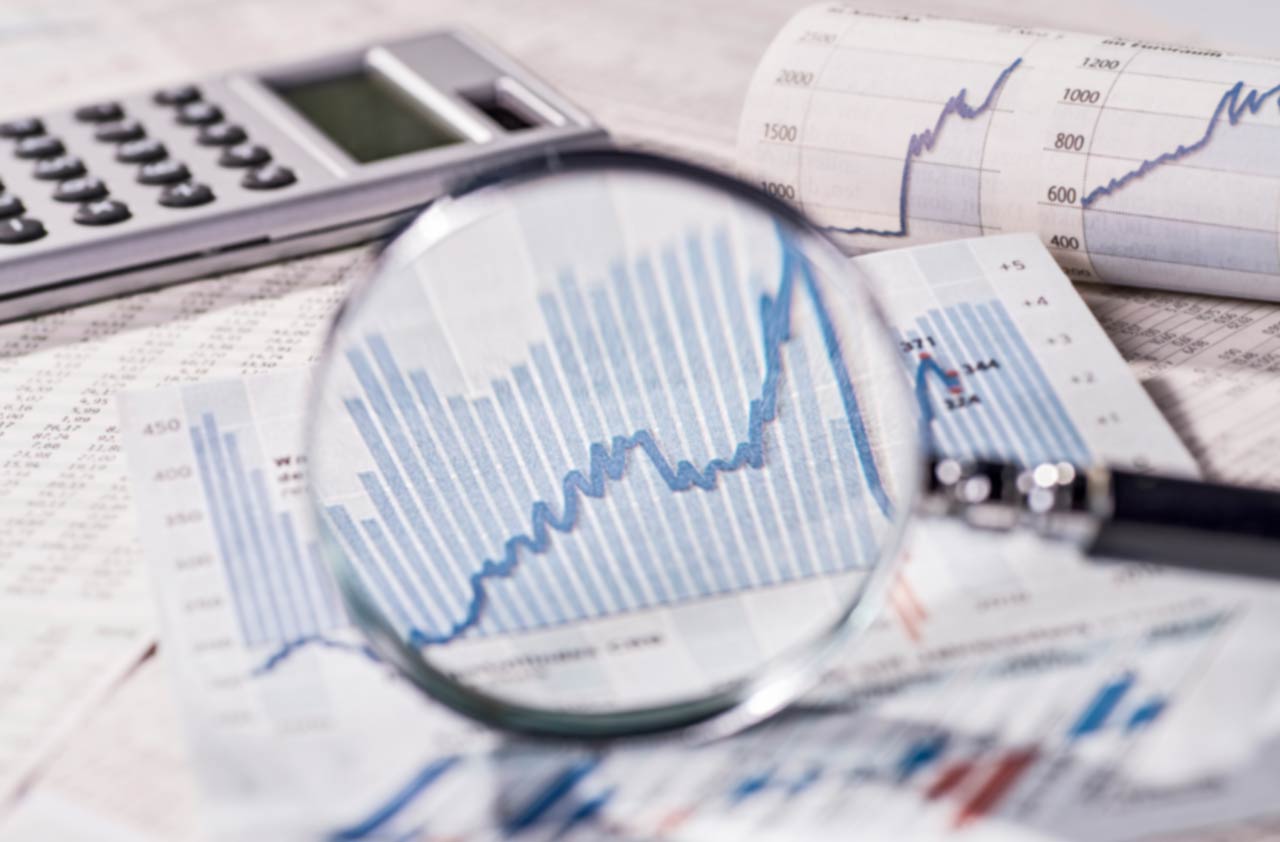How Dividend-Paying Stocks May Help Boost Retirement Income
While no magic bullet, these types of stocks are worth considering, even after retirement.


Profit and prosper with the best of Kiplinger's advice on investing, taxes, retirement, personal finance and much more. Delivered daily. Enter your email in the box and click Sign Me Up.
You are now subscribed
Your newsletter sign-up was successful
Want to add more newsletters?

Delivered daily
Kiplinger Today
Profit and prosper with the best of Kiplinger's advice on investing, taxes, retirement, personal finance and much more delivered daily. Smart money moves start here.

Sent five days a week
Kiplinger A Step Ahead
Get practical help to make better financial decisions in your everyday life, from spending to savings on top deals.

Delivered daily
Kiplinger Closing Bell
Get today's biggest financial and investing headlines delivered to your inbox every day the U.S. stock market is open.

Sent twice a week
Kiplinger Adviser Intel
Financial pros across the country share best practices and fresh tactics to preserve and grow your wealth.

Delivered weekly
Kiplinger Tax Tips
Trim your federal and state tax bills with practical tax-planning and tax-cutting strategies.

Sent twice a week
Kiplinger Retirement Tips
Your twice-a-week guide to planning and enjoying a financially secure and richly rewarding retirement

Sent bimonthly.
Kiplinger Adviser Angle
Insights for advisers, wealth managers and other financial professionals.

Sent twice a week
Kiplinger Investing Weekly
Your twice-a-week roundup of promising stocks, funds, companies and industries you should consider, ones you should avoid, and why.

Sent weekly for six weeks
Kiplinger Invest for Retirement
Your step-by-step six-part series on how to invest for retirement, from devising a successful strategy to exactly which investments to choose.
When you’re retired, managing your investments can start to get a little tricky.
The urge you have to see your money grow is tempered by your concerns about taking too much risk at this time of your life. In essence, you want your financial cake, but you want to eat it, too — and it’s challenging to find a way to make that happen.
There is at least one option that’s worth considering for those who are determined to stay in the stock market after retirement, yet who also grow nervous whenever the market starts getting a little shaky.
From just $107.88 $24.99 for Kiplinger Personal Finance
Become a smarter, better informed investor. Subscribe from just $107.88 $24.99, plus get up to 4 Special Issues

Sign up for Kiplinger’s Free Newsletters
Profit and prosper with the best of expert advice on investing, taxes, retirement, personal finance and more - straight to your e-mail.
Profit and prosper with the best of expert advice - straight to your e-mail.
That option is dividend-paying stocks, which could provide you a little extra income even when the stock market isn’t acting as friendly as you would have hoped. Each quarter, these stocks pay you a certain amount per share that, depending on your personal lifestyle and/or investments, could help you pay the monthly bills or finance that special vacation you’ve been wanting to take.
Of course, that doesn’t mean dividend-paying stocks will always come through for you. In a poor economy, a lot can happen. Maybe the dividend will keep coming at more or less the amount you’ve come to expect. Maybe the amount of the dividend will drop a little — or a lot. Or maybe the company will temporarily stop paying any dividends at all.
And, of course, the overall value of a dividend-paying stock can go up or down, just like any other stock — so don’t think this is some sort of miracle guarantee in the market. It’s not. Far from it.
What it is, though, is one more tool in your investment toolbox that has the potential to reap rewards for you.
So, let’s say you’re intrigued and you want to move forward with this particular retirement investing strategy. Here are a few things to keep in mind as you contemplate building a dividend-paying arm of your portfolio.
Don’t Get Greedy
Right off the bat, you could be tempted to research which stock pays the highest dividend, let dollar signs light up your eyes and declare: “That’s the one.” Well, maybe. But, as counterintuitive as it might seem, going with the highest dividend isn’t necessarily the automatic correct answer.
Companies that offer exceptionally high dividends might be doing so for a reason. They could be a risky investment, and the high dividend is how they convince wary investors to buy their stock. Sure, maybe those high dividends will work out for you, but it’s worth being cautious about the potential downsides — especially when you’re in or near retirement.
Instead, Take a Walk on the Mild Side
OK, set that high-dividend stock aside for the moment, and look in the opposite direction. Maybe you should consider the stock of a company that’s a little more miserly with the value of its dividends but is in better shape when it comes to the corporate bottom line. In this case, you’ll need to settle for less income each quarter (I know, not the ideal), but perhaps you won’t toss and turn as much at night, worried about whether that portion of your portfolio is destined to go into freefall.
Check Out Some ‘Old Faithfuls’
Finally, you could consider companies that some people refer to as the “Old Faithfuls” of the dividend-paying world. They always increase their dividends — seemingly no matter what. A little research should introduce you to a few such companies that have been doing that for decades (for some ideas, try 11 Dividend Stocks With 55 or More Years of Payout Growth), and you can decide if that’s the way you want to go. (But be warned, even Old Faithfuls can change. Just because something has always happened in the past doesn’t mean it will continue to always happen.)
Remember, dividend-paying stocks aren’t a magical investment that carries no risk, but they can be a solid foundation to your future investment strategy.
Ronnie Blair contributed to this article.
New River Financial Group, LLC is a Registered Investment Adviser offering advisory services in the state of Virginia and other jurisdictions where exempted. New River Financial Group, LLC dba Martin Wealth Solutions.
Profit and prosper with the best of Kiplinger's advice on investing, taxes, retirement, personal finance and much more. Delivered daily. Enter your email in the box and click Sign Me Up.

Jim Martin is the president and founder of New River Financial Group with offices across Virginia. A Registered Financial Consultant and Accredited Asset Management Specialist, he has passed the Series 66 and Series 7 exams and is an insurance professional. Martin focuses on comprehensive financial planning to help individuals and business owners take control of their financial future.
-
 Nasdaq Leads a Rocky Risk-On Rally: Stock Market Today
Nasdaq Leads a Rocky Risk-On Rally: Stock Market TodayAnother worrying bout of late-session weakness couldn't take down the main equity indexes on Wednesday.
-
 Quiz: Do You Know How to Avoid the "Medigap Trap?"
Quiz: Do You Know How to Avoid the "Medigap Trap?"Quiz Test your basic knowledge of the "Medigap Trap" in our quick quiz.
-
 5 Top Tax-Efficient Mutual Funds for Smarter Investing
5 Top Tax-Efficient Mutual Funds for Smarter InvestingMutual funds are many things, but "tax-friendly" usually isn't one of them. These are the exceptions.
-
 Social Security Break-Even Math Is Helpful, But Don't Let It Dictate When You'll File
Social Security Break-Even Math Is Helpful, But Don't Let It Dictate When You'll FileYour Social Security break-even age tells you how long you'd need to live for delaying to pay off, but shouldn't be the sole basis for deciding when to claim.
-
 I'm an Opportunity Zone Pro: This Is How to Deliver Roth-Like Tax-Free Growth (Without Contribution Limits)
I'm an Opportunity Zone Pro: This Is How to Deliver Roth-Like Tax-Free Growth (Without Contribution Limits)Investors who combine Roth IRAs, the gold standard of tax-free savings, with qualified opportunity funds could enjoy decades of tax-free growth.
-
 One of the Most Powerful Wealth-Building Moves a Woman Can Make: A Midcareer Pivot
One of the Most Powerful Wealth-Building Moves a Woman Can Make: A Midcareer PivotIf it feels like you can't sustain what you're doing for the next 20 years, it's time for an honest look at what's draining you and what energizes you.
-
 I'm a Wealth Adviser Obsessed With Mahjong: Here Are 8 Ways It Can Teach Us How to Manage Our Money
I'm a Wealth Adviser Obsessed With Mahjong: Here Are 8 Ways It Can Teach Us How to Manage Our MoneyThis increasingly popular Chinese game can teach us not only how to help manage our money but also how important it is to connect with other people.
-
 Looking for a Financial Book That Won't Put Your Young Adult to Sleep? This One Makes 'Cents'
Looking for a Financial Book That Won't Put Your Young Adult to Sleep? This One Makes 'Cents'"Wealth Your Way" by Cosmo DeStefano offers a highly accessible guide for young adults and their parents on building wealth through simple, consistent habits.
-
 Global Uncertainty Has Investors Running Scared: This Is How Advisers Can Reassure Them
Global Uncertainty Has Investors Running Scared: This Is How Advisers Can Reassure ThemHow can advisers reassure clients nervous about their plans in an increasingly complex and rapidly changing world? This conversational framework provides the key.
-
 I'm a Real Estate Investing Pro: This Is How to Use 1031 Exchanges to Scale Up Your Real Estate Empire
I'm a Real Estate Investing Pro: This Is How to Use 1031 Exchanges to Scale Up Your Real Estate EmpireSmall rental properties can be excellent investments, but you can use 1031 exchanges to transition to commercial real estate for bigger wealth-building.
-
 Should You Jump on the Roth Conversion Bandwagon? A Financial Adviser Weighs In
Should You Jump on the Roth Conversion Bandwagon? A Financial Adviser Weighs InRoth conversions are all the rage, but what works well for one household can cause financial strain for another. This is what you should consider before moving ahead.